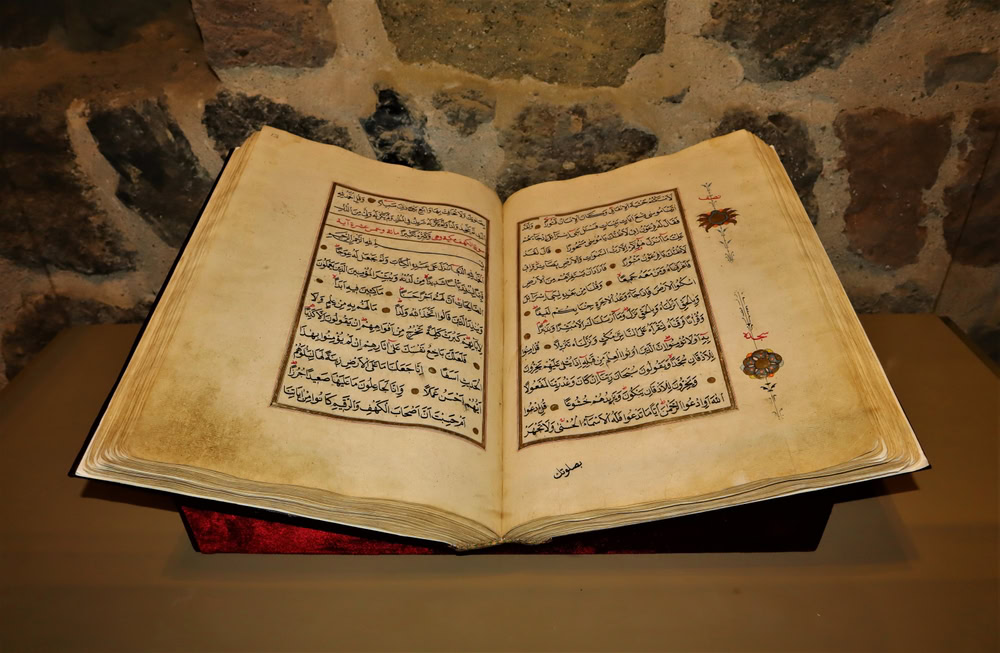What Role Does Context Play in Understanding Quranic Verses?
Answered by Shaykh Anas al-Musa
Question
What role does context play in understanding Quranic verses?
Answer
In the name of Allah, the Most Gracious, the Most Merciful.
All praise is due to Allah, Lord of all worlds. Peace and blessings be upon the Messenger sent as a mercy to the worlds, our Master and Prophet, Muhammad, and his Family and Companions.
The context of Quranic verses has a crucial role in accurately understanding and interpreting them. It is, in fact, impossible to interpret verses in isolation from their context.
Quranic context refers to a method that must be observed in understanding Quranic verses. This involves examining the verses surrounding the one being interpreted, whether preceding or following it, as well as considering the circumstances and context in which the verses were revealed.
Types of Quranic Context
- Linguistic Context: This entails observing grammatical and rhetorical rules while analyzing the Quranic text by examining the relationships between its words, the connectors used between them, and the resulting meanings from these relationships.
- Thematic Context: This means considering the general theme of the chapter (sura) or verses to clarify the overarching message and divine objectives of the verses in question. For instance, verses on jihad have a different context compared to those addressing legal rulings.
- Historical Context: This involves considering the circumstances and events surrounding the revelation of the verses. This provides the interpreter with a broader understanding of the best approach to comprehend the verses. Knowing the environment in which the Quran was revealed, such as the prevailing customs and traditions, plays a significant role in understanding the verses.
Adhering to Principles in Quranic Interpretation
Finally, interpreting the Quran requires adhering to established principles and guidelines. Failure to observe these can lead to a distortion of Allah’s words. Misinterpreting verses doesn’t only involve changing or omitting words; it can also occur through altering their intended meaning.
Recommendation
Please see: “Manhaj al-Siyaq fi Fahm al-Nass” by Dr. ‘Abd al-Rahman Bu Dara‘, and “al-Asas fi al-Tafsir” by Sa‘id Hawwa.
Additionally, various works of Quranic exegesis emphasize the significance of the Quranic context in interpretation.
And Allah knows best.
May Allah bless the Prophet Muhammad and give him peace, and his Family and Companions.
[Shaykh] Anas al-Musa
Shaykh Anas al-Musa, born in Hama, Syria, in 1974, is an erudite scholar of notable repute. He graduated from the Engineering Institute in Damascus, where he specialized in General Construction, and Al-Azhar University, Faculty of Usul al-Din, where he specialized in Hadith.
He studied under prominent scholars in Damascus, including Shaykh Abdul Rahman al-Shaghouri and Shaykh Adib al-Kallas, among others. Shaykh Anas has memorized the Quran and is proficient in the ten Mutawatir recitations, having studied under Shaykh Bakri al-Tarabishi and Shaykh Mowfaq ‘Ayun. He also graduated from the Iraqi Hadith School.
He has taught numerous Islamic subjects at Shari‘a institutes in Syria and Turkey. Shaykh Anas has served as an Imam and preacher for over 15 years and is a teacher of the Quran in its various readings and narrations.
Currently, he works as a teacher at SeekersGuidance and is responsible for academic guidance there. He has completed his Master’s degree in Hadith and is now pursuing his Ph.D. in the same field. Shaykh Anas al-Musa is married and resides in Istanbul.
